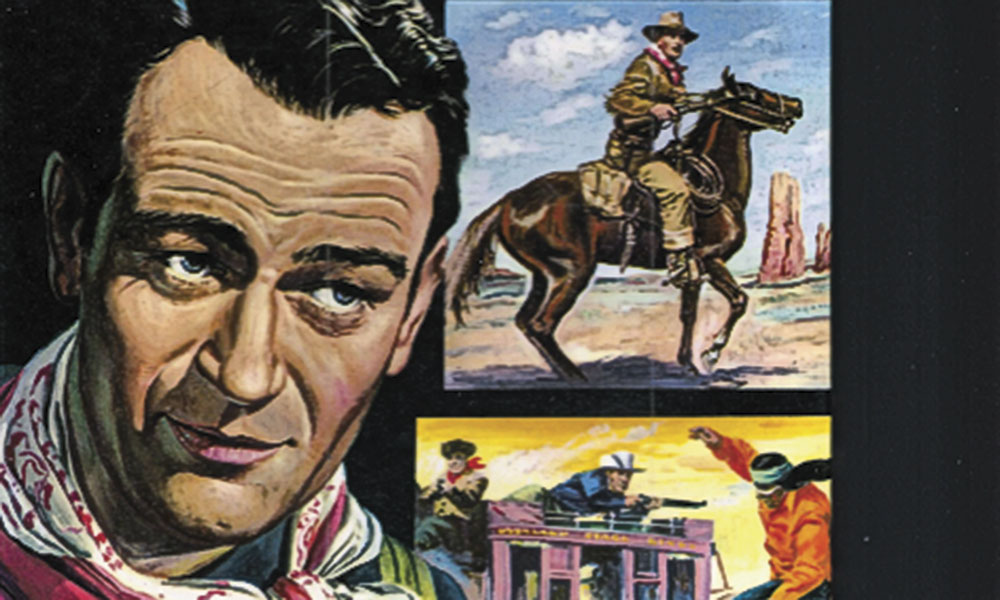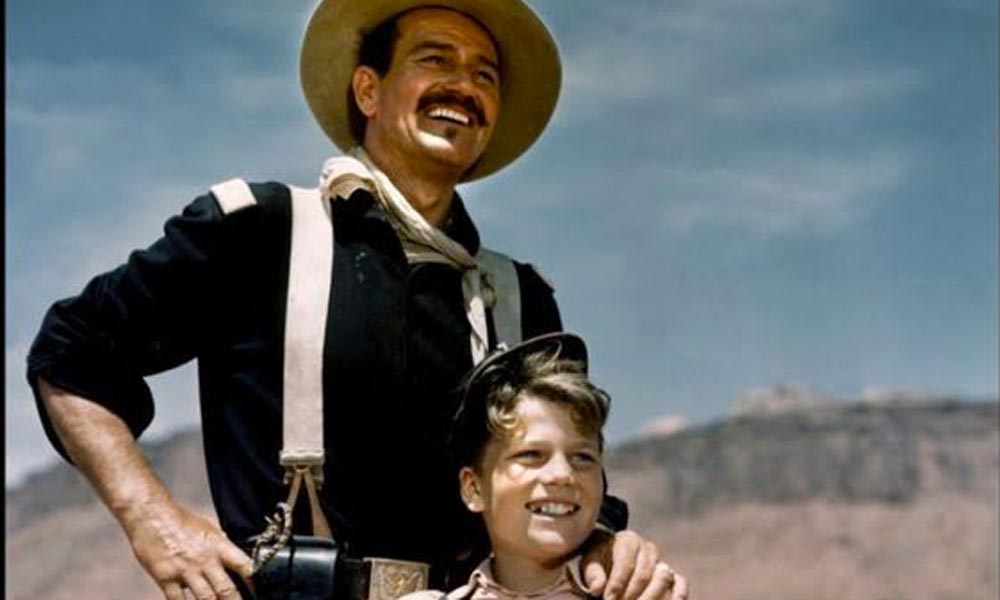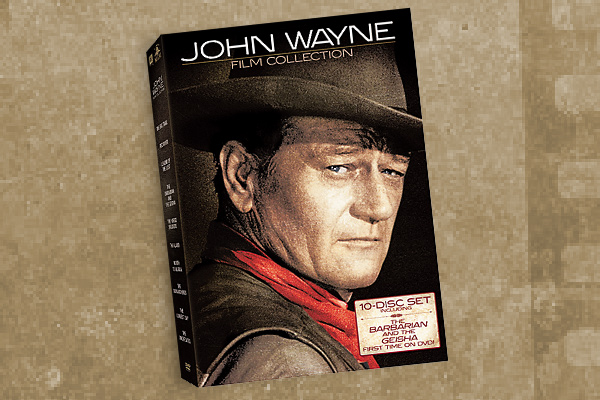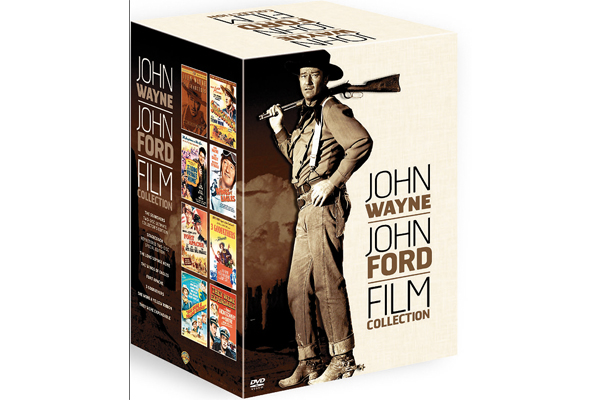
– Published by World Distributors, 1957 –
One might assume John Wayne and William F. Cody had little in common besides their Iowa origins and international fame as actors.
Unlike Cody, Wayne had not, in reality, performed any of the heroic deeds he acted out on the silver screen. He avoided military service in WWII, while many other actors volunteered; Audie Murphy, the most decorated hero of the war, went on to be a movie star, but was never in the same league with Wayne. Yet, in nearly 150 films, Wayne came to embody for 20th-century Americans the same nationalistic virtues that Cody had defined for 19th-century Americans.
Wayne easily morphed from his handsome Ringo Kid role into a middle-aged freedom fighter—Davy Crockett—and finally, like Cody, into a heroic anachronism —Rooster Cogburn. He became the symbol of America projected on screens throughout the world. Even his support of conservative causes and politicians (Barry Goldwater, Ronald Reagan), and an unpopular foreign war were ignored by Americans, both young and old, who found his screen persona comforting. Although Wayne played a handful of historical roles, he essentially simply played himself—just like Cody had done.
In 1979, President Jimmy Carter visited Wayne in his hospital deathbed and later said of him: “John Wayne was bigger than life. In an age of few heroes, he was the genuine article. But he was more than a hero; he was a symbol of many of the qualities that made America great.”
Paul Andrew Hutton has published 10 books and teaches history at the University of New Mexico. He won the Spur for The Apache Wars: The Hunt for Geronimo, the Apache Kid, and the Captive Boy Who Started the Longest War in American History.





